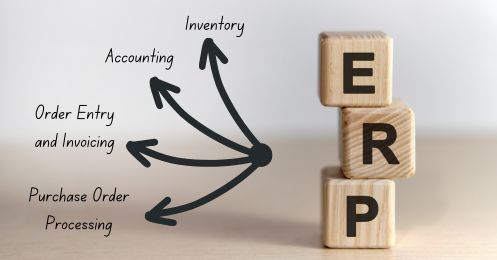An ERP software system is by definition an integrated system that facilitates a variety of business processes. With that in mind, the question becomes: what functionality can be expected from an ERP system? Although ERP software varies from vendor to vendor, there are a number of standard features that help define the system as a true ERP system, such as:
- Inventory Management
- Accounting
- Order Entry and Invoicing
- Purchase order processing
- Contact/Customer Relationship Management
A software package that lacks any of the above features would be hard-pressed to justify their classification as a true ERP offering. The idea behind implementing
ERP software is to have a single system that can manage all facets of a business. If any of these core components are missing, multiple pieces of software may be required to accommodate your business operations.
Aside from the basics that most advanced ERP systems will offer, additional modules and functionality should be available to accomplish additional business-specific tasks. These modules should always be taken into consideration as they can allow for powerful functionality and expansion in the future. Some examples of advanced functionality are:
- Lot Tracking
- Landed Cost Tracking
- Commission Processing
- Multi-currency and Multi-location capabilities
Rather than installing numerous disparate systems, it is always beneficial to install a single integrated system to serve as a single access point for your business information. Instead of searching for an accounting system to integrate with your inventory system or vice versa, consider an ERP system to simplify your business.











